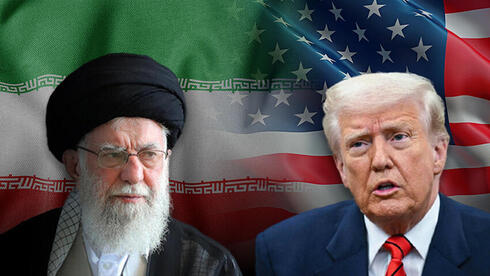President Donald Trump’s instinct for disruption and tendency to shoot from the hip has caused chaos, opposition and abrupt reversals. But this week, Trump reminded us that sometimes his willingness to take risks and think outside the box can shake up tired old ways. In Saudi Arabia, he surprised everyone by meeting with Syria’s new leader (a former jihadist) and announcing that he would remove all U.S. sanctions on the country. He has also repeatedly suggested that his administration is willing to make a new nuclear deal with Iran. If so, he could bring a new level of peace and stability to the Middle East.
Trump’s newfound interest in an Iran deal is ironic verging on bizarre. After all, he was the one who pulled the United States out of the original Iran nuclear deal, even though most serious observers, including U.S. intelligence officials, believed that Iran had been adhering to the terms of the deal. This is one more example of Donald Trump creating a problem, reversing himself, and then proudly announcing to the world that he has brilliantly reset the situation.
But whatever the past, events have transpired that could make for a better deal today than before. The two fundamental shifts that are most relevant here are Iran’s weakness and Saudi Arabia’s strength.
Iran is in worse shape than it has been in a generation. Decades of chronic mismanagement of the economy (exacerbated by sanctions), massive corruption and a brutal dictatorship have caused deep public dissatisfaction with the Islamic regime. Add to that last year’s stunningly successful Israeli assaults on Hezbollah and Iran’s air defenses. Plus, Tehran’s closest Arab ally, Syria’s Bashar al-Assad’s government, collapsed and the primary opposition forces (whom Iranian-backed militias had been fighting for years) became the new government. Put this all together and Iran is at its weakest point since Saddam Hussein invaded the fledgling Islamic republic in 1980.
Second, Saudi Arabia has been growing in strength, and its foreign policy has been transformed over the last few years. It has negotiated a de facto truce with the Houthis, improved relations with Qatar, and developed better ties with countries like Lebanon and Iraq. Crown Prince Mohammed bin Salman has realized that to achieve his primary dream — the modernization of Saudi Arabia — he needs stability in the region. The most remarkable sign of this has been the growing rapprochement between Saudi Arabia and Iran, with officials of the two countries meeting with some regularity. Saudi officials now explicitly support talks for a new Iran nuclear deal.
The obstacle to the deal is what it has always been — Benjamin Netanyahu. But increasingly his obstinacy does not find support from Saudi Arabia or other gulf states. Why? Perhaps they are less wary of Iran because of its weakened state, perhaps because Netanyahu’s ferocious war in Gaza has made it harder for them to back anything he advocates, and perhaps because they realize that such a deal is in fact the best way to contain the dangers of nuclear proliferation in the region. Additionally, one of the compromises being mooted — a regional consortium that would enrich uranium — could be a helpful model that would pave the way for Saudi Arabia’s own plan to have a civilian nuclear program.
The challenge for Trump is that his administration is divided on this issue between two camps: realists and neoconservatives. The former includes Trump himself and Steve Witkoff, the chief negotiator. On the other side are various Iran hawks, most prominently Marco Rubio, along with a bevy of congressional Republicans. The two sides still seem to be battling, which explains why the Trump administration seems to change its tone and emphasis every few days.
The main Iran hawk, of course, is Netanyahu, who warns that Iran will get a bomb unless it is bombed. But it is worth keeping in mind that Netanyahu has been predicting that Iran is months away from getting a nuclear bomb for more than a decade. Actually, Netanyahu wrote a book in which he claimed Iran was on a relentless path to a nuclear bomb — in 1995! He has asserted that Iran is a “messianic apocalyptic cult” — and therefore negotiating with them would be pointless.
The more prosaic reality is that Iran is run by a bunch of brutish mullahs and corrupt military officials, who have spent their energies amassing fortunes in this world, not preparing for the next one. They have found it more advantageous to stay months away from a nuclear weapon rather than cross that line. They want sanctions relief, not an end-of-days conflagration.
There is a deal to be made with such men: not to become friends, but to serve a common interest of defusing the dangers of nuclear arms races and bringing stability to a Middle East that has been scarred by generations of war and terror. Trump is uniquely positioned to override Netanyahu’s objections, cut through the usual Washington battle lines and grab this opportunity.



